Patient-Centered Research and Social Media
By Christopher C. Yang, Rebecca Chiu, Simon Lin, and Akhil Kumar
At ICHI 2013, a panel of four experts discussed the challenges and opportunities of patient-centered research by harnessing social media. They presented examples illustrating how social media data can be mined to benefit both the patient and clinical communities.
The healthcare system is currently in the process of transforming from reactive care to proactive and preventive care. Patients are taking an active role in seeking health information to get a better understanding of their health conditions and the treatments or medications they are receiving. They also want to be alerted to the latest developments in global health issues such as flu outbreaks or new vaccines. Patients often go online to search for authoritative information or to communicate with peers who have similar health conditions. Social media plays an important role in empowering patients to acquire healthcare knowledge. The latest sensor and mobile technologies also enable patients to track their health conditions ubiquitously. In the IEEE International Conference on Healthcare Informatics 2013, four panel speakers from Drexel University, MedHelp, Marshfield Clinic Research Foundation, and Pennsylvania State University have discussed the challenges and opportunities of patient-centered research by harnessing social media. Among many popular social media sites and healthcare-specific social media sites as shown in Figure 1, MedHelp (http://MedHelp.org) is one of the leading social media sites in consumer health engagement (Figure 2). Healthcare requires privacy and anonymity, making traditional social media sites such as Facebook and Twitter inadequate in sharing health data or personal health experiences. On the other hand, MedHelp has powered social media discussions and data sharing for health conditions in a private and protected manner since 1994. MedHelp has 13 million active monthly users, over 200 active condition-specific communities, and 6 million mobile app downloads. MedHelp also provides expert forums for the health professionals to answer the questions from health consumers directly. The content in MedHelp covers healthcare articles, newsletters, slideshows, quizzes, community forums and expert blogs. In addition, MedHelp provides a data platform for consumers to gather data from mobile apps, web apps, and health devices (Figure 3). Such enormous volume of content and data not only enable patients in acquiring knowledge beyond what they can obtain through traditional channels but also generate valuable and timely resources for patient-centered research. Early signals can be discovered by mining social media data, both in structured form (e.g., mobile apps and devices) as well as unstructured form (e.g., community discussions). Patients can compare their data with other patients as well as aggregated benchmark data to gain insights. MedHelp is currently deploying the social and mobile platform for its partners so that these healthcare partners can collect patient data, personalize their communication and services, and reward healthy behaviors.
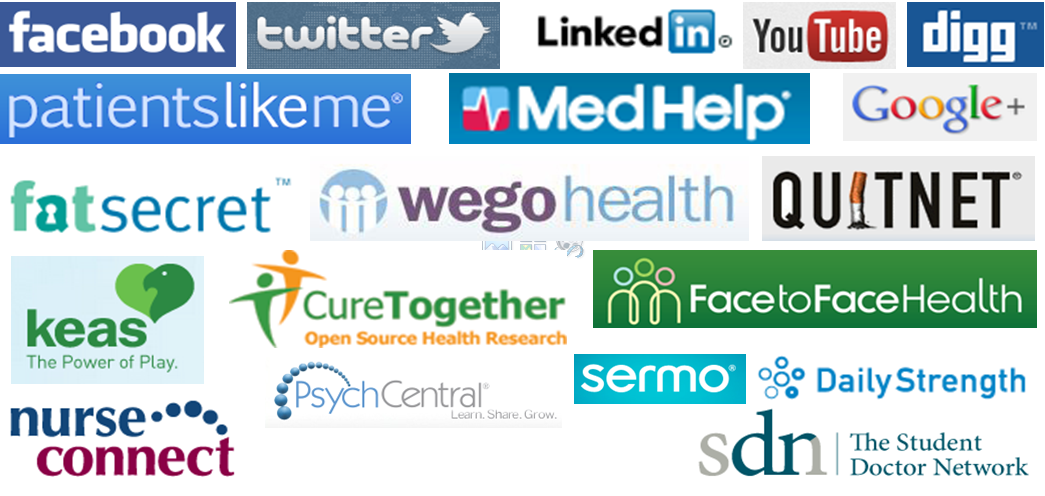
Figure 1: Popular and healthcare specific social media sites
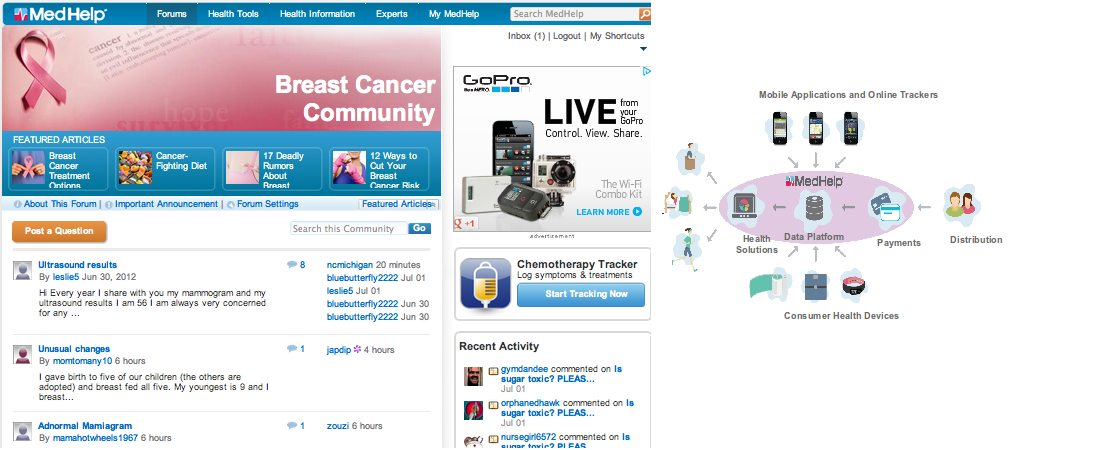
Figure 2: MedHelp communities and health data platform
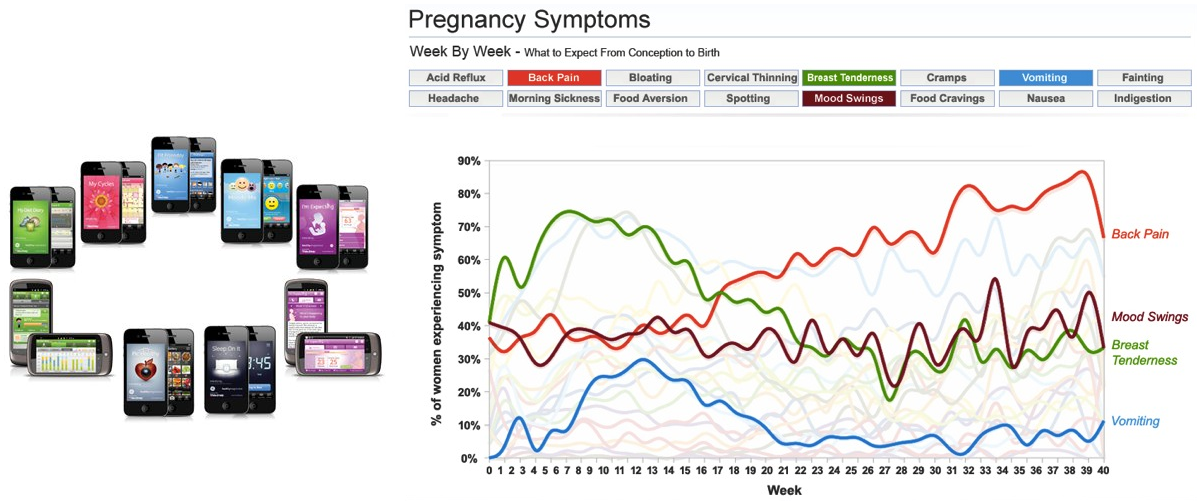
Figure 3: MedHelp mobile apps and big data insights.
Patient-centered outcome research using social media data lies at the intersection of big data and social media (Figure 4) as Dion Hinchcliffe pointed out in his blog in 2011. The Biomedical Informatics Research Center at Marshfield Clinic Research Foundation is currently developing the text analytics techniques which combine statistics, natural language processing, and visualization to analyze a large volume of healthcare social media data. Actonnect (Figure 5), a collaborative effort among Marshfield, Drexel, and a few other institutions, is a web-based search engine and interface that aims to enable patients, clinicians, researchers, and others to conduct searches of health information gleaned from dozens of patient forums and social media sites and share their results graphically. Actonnect’s conceptual model has recently won the first place award in the Patient-Research Matching Challenge organized by the Patient-Centered Outcomes Research Institute.
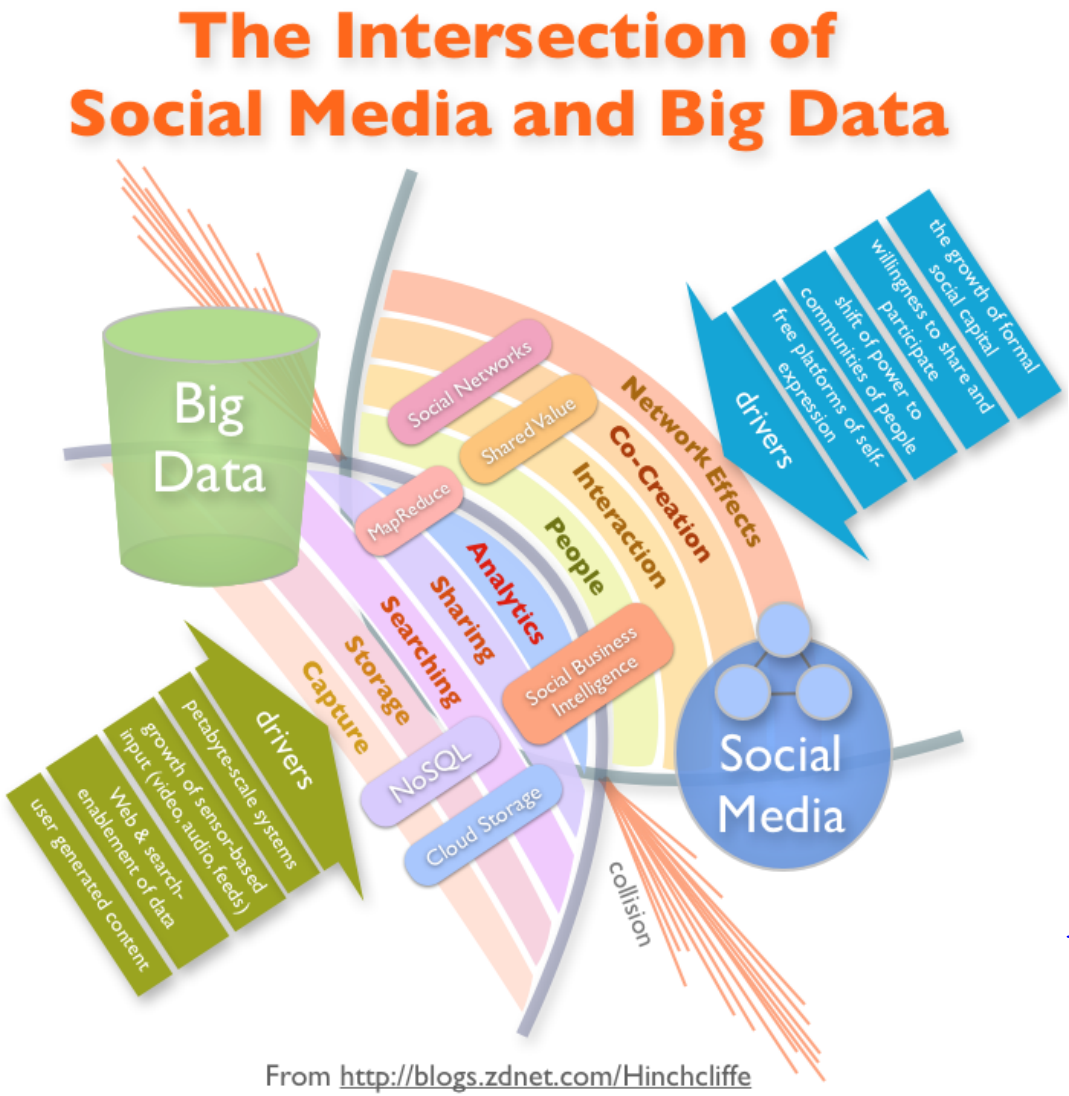
Figure 4: The intersection of big data and social media
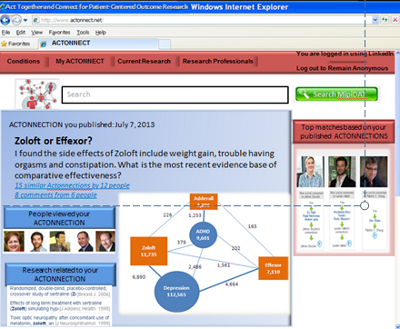
Figure 5: Actonnect
There are many related efforts in supporting users in accessing healthcare forums through context-specific approach or recommending other health consumers based on their influence. Kumar and Zhao [4] have recently developed keyword and user navigation graphs as techniques to assist health consumers to identify most viewed posts and navigate from symptoms to diagnoses, and from diagnoses to treatments. Tang and Yang [5] developed a ranking algorithm to rank the user influence by combing content-based and network-based approaches.
Recent work on analyzing social support exchange in healthcare social media platforms has identified that informational and nurturant support are two major kinds of social support provided by social media. Health consumers offer informational support mainly by sharing their personal experiences with each other [2] They also exchange advice and opinions, and make referrals to other information sources. To provide nurturant support, health consumers encourage their support recipients to express their feelings and emotions, and empathize with them [1]. Patients also use social media to connect to other patients who have similar health conditions and maintain a network with them. It is also shown that user interaction patterns vary depending on whether health consumers interact through a public page (e.g. forum) or by private messages [6].
Healthcare social media sites provide a large and timely resource for mining knowledge that may not be available in traditional platforms such as spontaneous reporting systems, electronic health databases and pharmaceutical databases. Recently, Yang et al. [7] harnessed social media data for detecting drug safety signals. They found that association mining techniques can effectively identify adverse drug reactions and the temporal analysis shows that the signals can be detected years before the FDA alerts are announced. However, understanding the expressions of health consumers is a great challenge in employing social media data. Unlike health professionals, most health consumers are not medically trained, and therefore, they use their own language to express their symptoms and health conditions. In addition, social media messages are usually composed of short and incomplete sentences. They may contain many grammatical errors as well. As a result, simply applying natural language processing and professional health ontologies will not achieve good performance. Yang et al. [7] have applied the Consumer Health Vocabulary (CHV) and developed techniques to expand CHV by employing co-occurrence analysis [3]. Yang and Yang [8] have also recently extended the association mining techniques to detect drug-drug interactions.
Social media captures the collective voice of patients. A huge volume of timely information from patients is aggregated in social media platforms. If we can harness this information using social media analytics and big data analytics, it will benefit both the patient and clinical communities. Such patient-centered research can help transform healthcare by shifting its focuses towards more proactive and preventive care.
For Further Reading
1. K. Chuang and C. C. Yang, “Interaction Patterns of Nurturant Support Exchanged in Online Health Social Networking,” Journal of Medical Internet Research, vol. 14, no.3, 2012.
2. K. Chuang and C. C. Yang, “Informational Support Exchanges on Different Computer-Mediated Communication Formats in a Social Media Community of Alcoholism,” Journal of the American Society for Information Science and Technology, to appear.
3. L. Jiang and C. C. Yang, “Using Co-occurrence Analysis to Expand Consumer Health Vocabularies from Social Media Data,” Proceedings of IEEE International Conference on Healthcare Informatics, Philadelphia, PA, September 8 – 11, 2013.
4. A. Kumar and K. Zhao, “Making sense of a healthcare forum – Smart keyword and user navigation graphs”, International Conference on Information Systems, Milan, Italy, December 2013 (forthcoming).
5. X. Tang and C. C. Yang, “Ranking User Influence in Healthcare Social Media,” ACM Transactions in Intelligent Systems and Technology, vol.3, no.4, 2012.
6. C. C. Yang, X. Tang, J. Huang, and J. Unger, “A Study of Social Interactions in Online Health Communities,” Proceedings of IEEE International Conference on Social Computing, Boston, MA, October 9 – 11, 2011.
7. C. C. Yang, H. Yang, L. Jiang, and M. Zhang, “Social Media Mining for Drug Safety Signal Detection,” Proceedings of ACM CIKM International Workshop on Smart Health and Wellbeing, Maui, Hawaii, October 29, 2012.
8. H. Yang and C. C. Yang, “Harnessing Social Media for Drug-Drug Interactions Detection,” Proceedings of IEEE International Conference on Healthcare Informatics, Philadelphia, PA, September 8 – 11, 2013.
Contributors
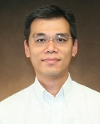 Christopher C. Yang is an associate professor in the College of Computing and Informatics at Drexel University. He received his PhD in computer engineering from the University of Arizona. His recent research interests include healthcare informatics, social intelligence and technology, Web search and mining, knowledge management, and information visualization. Read more
Christopher C. Yang is an associate professor in the College of Computing and Informatics at Drexel University. He received his PhD in computer engineering from the University of Arizona. His recent research interests include healthcare informatics, social intelligence and technology, Web search and mining, knowledge management, and information visualization. Read more
 Rebecca Chiu heads up Business Development for MedHelp, the leading online social media and mobile health platform. She works with strategic partners to help them engage patients and personalize their services, as well as building the partner ecosystem for MedHelp’s platform service. Ms. Chiu holds an M.A. and a B.A. in Economics from Yale University and an M.B.A. from The Wharton School. Read more
Rebecca Chiu heads up Business Development for MedHelp, the leading online social media and mobile health platform. She works with strategic partners to help them engage patients and personalize their services, as well as building the partner ecosystem for MedHelp’s platform service. Ms. Chiu holds an M.A. and a B.A. in Economics from Yale University and an M.B.A. from The Wharton School. Read more
 Simon Lin is Director of the Biomedical Informatics Research Center at Marshfield Clinic Research Foundation and he holds the Dr. John Melski Endowed Physician Scientist at Marshfield Clinic. Dr Lin received an MD degree in Medical Informatics at the School of Medicine, Peking University, Peking. Read more
Simon Lin is Director of the Biomedical Informatics Research Center at Marshfield Clinic Research Foundation and he holds the Dr. John Melski Endowed Physician Scientist at Marshfield Clinic. Dr Lin received an MD degree in Medical Informatics at the School of Medicine, Peking University, Peking. Read more
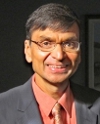 Akhil Kumar is a Professor of Information Systems at the Smeal College of Business at Penn State University. He received his Ph.D. from the University of California, Berkeley. His research interests are in healthcare IT, business process management systems, process mining and web services. Read more
Akhil Kumar is a Professor of Information Systems at the Smeal College of Business at Penn State University. He received his Ph.D. from the University of California, Berkeley. His research interests are in healthcare IT, business process management systems, process mining and web services. Read more







 Aniruddha Datta received the Ph.D. degree from the University of Southern California in 1991. In August 1991, he joined the Department of Electrical and Computer Engineering at Texas A&M University where he is currently the J. W. Runyon, Jr. '35 Professor II. His areas of interest include adaptive control, robust control, PID control and Genomic Signal Processing.
Aniruddha Datta received the Ph.D. degree from the University of Southern California in 1991. In August 1991, he joined the Department of Electrical and Computer Engineering at Texas A&M University where he is currently the J. W. Runyon, Jr. '35 Professor II. His areas of interest include adaptive control, robust control, PID control and Genomic Signal Processing.  Christopher C. Yang is an associate professor in the College of Computing and Informatics at Drexel University. He received his PhD in computer engineering from the University of Arizona. His recent research interests include healthcare informatics, social intelligence and technology, Web search and mining, knowledge management, and information visualization.
Christopher C. Yang is an associate professor in the College of Computing and Informatics at Drexel University. He received his PhD in computer engineering from the University of Arizona. His recent research interests include healthcare informatics, social intelligence and technology, Web search and mining, knowledge management, and information visualization.  Rebecca Chiu heads up Business Development for MedHelp, the leading online social media and mobile health platform. She works with strategic partners to help them engage patients and personalize their services, as well as building the partner ecosystem for MedHelp's platform service. Ms. Chiu holds an M.A. and a B.A. in Economics from Yale University and an M.B.A. from The Wharton School.
Rebecca Chiu heads up Business Development for MedHelp, the leading online social media and mobile health platform. She works with strategic partners to help them engage patients and personalize their services, as well as building the partner ecosystem for MedHelp's platform service. Ms. Chiu holds an M.A. and a B.A. in Economics from Yale University and an M.B.A. from The Wharton School.  Simon Lin is Director of the Biomedical Informatics Research Center at Marshfield Clinic Research Foundation and he holds the Dr. John Melski Endowed Physician Scientist at Marshfield Clinic. Dr Lin received an MD degree in Medical Informatics at the School of Medicine, Peking University, Peking.
Simon Lin is Director of the Biomedical Informatics Research Center at Marshfield Clinic Research Foundation and he holds the Dr. John Melski Endowed Physician Scientist at Marshfield Clinic. Dr Lin received an MD degree in Medical Informatics at the School of Medicine, Peking University, Peking.  Akhil Kumar is a Professor of Information Systems at the Smeal College of Business at Penn State University. He received his Ph.D. from the University of California, Berkeley. His research interests are in healthcare IT, business process management systems, process mining and web services.
Akhil Kumar is a Professor of Information Systems at the Smeal College of Business at Penn State University. He received his Ph.D. from the University of California, Berkeley. His research interests are in healthcare IT, business process management systems, process mining and web services.  Prasanna Desikan is currently Senior Research Scientist at Division of Applied Research, Office of Clinical Excellence, Allina Health. He received his Ph.D in Computer Science from University of Minnesota, Twin Cities, USA.
Prasanna Desikan is currently Senior Research Scientist at Division of Applied Research, Office of Clinical Excellence, Allina Health. He received his Ph.D in Computer Science from University of Minnesota, Twin Cities, USA.  Jaideep Srivastava is Professor of Computer Science & Engineering at the University of Minnesota, where he directs a laboratory focusing on research in Web Mining, Social Media Analytics, and Health Analytics. He has a PhD from the University of California, Berkeley.
Jaideep Srivastava is Professor of Computer Science & Engineering at the University of Minnesota, where he directs a laboratory focusing on research in Web Mining, Social Media Analytics, and Health Analytics. He has a PhD from the University of California, Berkeley.  Robert M. Kaplan, Ph.D. is Associate Director for Behavioral and Social Sciences and Director of the Office of Behavioral and Social Sciences Research (OBSSR) in the National Institutes of Health (NIH) Office of the Director. He is the author, co-author or editor of more than 18 books and over 500 articles or chapters.
Robert M. Kaplan, Ph.D. is Associate Director for Behavioral and Social Sciences and Director of the Office of Behavioral and Social Sciences Research (OBSSR) in the National Institutes of Health (NIH) Office of the Director. He is the author, co-author or editor of more than 18 books and over 500 articles or chapters.  Joydeep Ghosh is Joydeep Ghosh is the Schlumberger Centennial Chair Professor of Electrical and Computer Engineering at the University of Texas, Austin. Dr. Ghosh's research interests lie primarily in data mining and web mining, predictive modeling / predictive analytics and their applications to a wide variety of complex real-world problems, including extracting value from a variety of healthcare data. He received the Ph.D. at The University of Southern California.
Joydeep Ghosh is Joydeep Ghosh is the Schlumberger Centennial Chair Professor of Electrical and Computer Engineering at the University of Texas, Austin. Dr. Ghosh's research interests lie primarily in data mining and web mining, predictive modeling / predictive analytics and their applications to a wide variety of complex real-world problems, including extracting value from a variety of healthcare data. He received the Ph.D. at The University of Southern California.  Longjian Liu, MD, PhD, MSc, FAHA, is an associate professor of Epidemiology and Biostatistics at Drexel University School of Public Health, and associate professor of medicine at Drexel University College of Medicine. Dr. Liu's main research covers cardiovascular disease and diabetes prevention, and the usage of hospital electronic medical records to monitor and predict disease risk and outcomes.
Longjian Liu, MD, PhD, MSc, FAHA, is an associate professor of Epidemiology and Biostatistics at Drexel University School of Public Health, and associate professor of medicine at Drexel University College of Medicine. Dr. Liu's main research covers cardiovascular disease and diabetes prevention, and the usage of hospital electronic medical records to monitor and predict disease risk and outcomes.  Vipin Gopal is the Vice President of Clinical Analytics at Humana, a Fortune 100 company. He is an expert in developing differentiating analytic competencies, and has previously led analytic functions in diverse companies ranging from industrial conglomerates to healthcare. Dr. Gopal obtained his Ph.D. from Carnegie Mellon University.
Vipin Gopal is the Vice President of Clinical Analytics at Humana, a Fortune 100 company. He is an expert in developing differentiating analytic competencies, and has previously led analytic functions in diverse companies ranging from industrial conglomerates to healthcare. Dr. Gopal obtained his Ph.D. from Carnegie Mellon University.  Christian Seeger is currently a Ph.D. student in the Databases and Distributed Systems group led by Prof. Alejandro Buchmann at TU Darmstadt. His research interests are middleware approaches and applications for on-body and ambient sensor networks.
Christian Seeger is currently a Ph.D. student in the Databases and Distributed Systems group led by Prof. Alejandro Buchmann at TU Darmstadt. His research interests are middleware approaches and applications for on-body and ambient sensor networks.  Kristof Van Laerhoven obtained his Ph.D. at Lancaster University (UK) He heads the Embedded Sensing Systems lab at the TU Darmstadt (Germany), funded by the Emmy Noether Programme of the German research foundation DFG. His research combines sensing systems with pattern recognition and machine learning, to obtain adaptive and power-efficient systems.
Kristof Van Laerhoven obtained his Ph.D. at Lancaster University (UK) He heads the Embedded Sensing Systems lab at the TU Darmstadt (Germany), funded by the Emmy Noether Programme of the German research foundation DFG. His research combines sensing systems with pattern recognition and machine learning, to obtain adaptive and power-efficient systems.